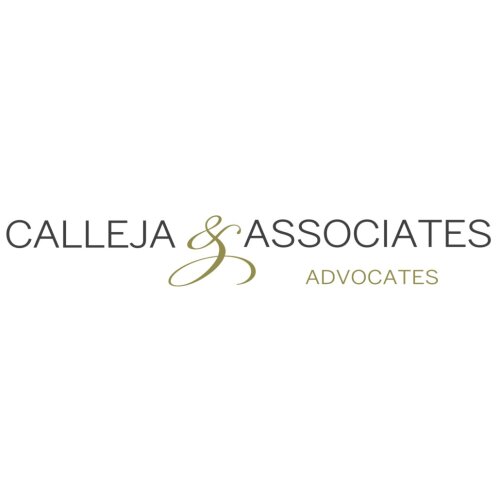Best Bankruptcy & Debt Lawyers in Malta
Share your needs with us, get contacted by law firms.
Free. Takes 2 min.
Or refine your search by selecting a city:
List of the best lawyers in Malta
About Bankruptcy & Debt Law in Malta
Bankruptcy and debt law in Malta governs the legal process for individuals and businesses that are unable to pay their debts. The system provides a structured approach to resolving financial difficulties, ensuring fair distribution of assets among creditors while offering individuals an opportunity for a fresh start. Bankruptcy is primarily regulated by the Commercial Code in Malta, which sets out the procedures that must be followed to declare bankruptcy and seek debt relief.
Why You May Need a Lawyer
There are several situations where individuals and businesses might find themselves in need of legal assistance with bankruptcy and debt issues in Malta:
- Complex Financial Situations: Navigating bankruptcy laws can be complex, especially in cases involving significant assets or multiple creditors.
- Debt Negotiations: Legal counsel can be invaluable in negotiating with creditors to reach an amicable settlement or restructure debt.
- Avoiding Legal Pitfalls: A lawyer can help ensure that all legal requirements are met to avoid litigation or further financial penalties.
- Asset Protection: Legal advice can help protect personal or business assets during bankruptcy proceedings.
- Understanding Legal Rights: A lawyer can explain your rights and options under Maltese bankruptcy and debt law, helping you make informed decisions.
Local Laws Overview
In Malta, the primary legislation dealing with bankruptcy is the Commercial Code. Key aspects include:
- Declaration of Bankruptcy: A debtor may be declared bankrupt if they are unable to meet their debts. The process involves a court application and the appointment of a Curator to manage the debtor's affairs.
- Role of the Curator: The Curator takes control of the bankrupt's estate, manages asset liquidation, and distributes proceeds to creditors.
- Debt Repayment Plans: Debtors may propose voluntary arrangements with creditors as an alternative to bankruptcy.
- Priority of Claims: Creditors are paid based on the priority of their claims, determined by law.
- Discharge of Debts: Successful completion of the bankruptcy process can lead to the discharge of outstanding debts, offering a fresh financial start.
Frequently Asked Questions
What is the process to declare bankruptcy in Malta?
Declaring bankruptcy in Malta involves filing a petition with the court, followed by a legal process that assesses the debtor's financial situation. This can result in liquidation of assets to pay creditors.
What are the alternatives to bankruptcy in Malta?
Alternatives include debt restructuring, voluntary arrangements with creditors, or seeking mediation services to reach a mutual agreement on debt settlement.
Can all debts be discharged in bankruptcy?
Not all debts are dischargeable. Certain obligations, such as fines, taxes, and child support payments, may remain even after bankruptcy.
How does bankruptcy affect personal assets?
During bankruptcy, personal assets may be liquidated to repay creditors. Some assets, however, may be exempt from liquidation under Maltese law.
Can bankruptcy filings be contested by creditors?
Yes, creditors can challenge a bankruptcy filing if they believe the debtor has not met the legal requirements for declaring bankruptcy.
How long does bankruptcy stay on record in Malta?
Bankruptcy records in Malta typically remain public for a number of years, impacting the debtor's ability to obtain credit during this time.
What happens to joint debts in bankruptcy?
In cases of joint debts, the co-debtor may still be responsible for full repayment unless they also file for bankruptcy.
What is the role of a Curator in a bankruptcy case?
The Curator manages the bankrupt's estate, handles asset liquidation, and distributes proceeds to creditors in the order of claim priority.
Can a company continue operating during bankruptcy proceedings?
Companies may operate under certain conditions, but significant decisions typically require oversight from the Curator or the court.
Is it possible to recover financially after filing for bankruptcy?
Yes, many individuals and businesses recover financially post-bankruptcy by reestablishing credit and responsibly managing their finances.
Additional Resources
For more information and assistance, consider contacting the following resources:
- The Malta Financial Services Authority (MFSA): Offers guidance on financial regulation and related inquiries.
- Credit Info Malta: Provides credit information and financial advice services.
- Chamber of Advocates: A professional body for licensed lawyers in Malta for legal representation.
- Office of the Attorney General: Provides legal opinions and represents the government in legal matters.
- Local Mediation Centers: Provide services to mediate disputes between debtors and creditors.
Next Steps
If you find yourself in need of legal assistance with bankruptcy and debt matters in Malta, consider taking the following steps:
- Consult with a qualified lawyer specializing in bankruptcy and debt law to assess your situation and discuss options.
- Gather all relevant financial documents, including lists of assets, liabilities, and communications with creditors.
- Explore potential debt relief options with your legal advisor to determine the best course of action.
- Ensure you understand all legal requirements and implications of your decisions before proceeding with bankruptcy or any alternative measures.
- Stay informed by following any updates or changes in Maltese bankruptcy law that may affect your case.
Lawzana helps you find the best lawyers and law firms in Malta through a curated and pre-screened list of qualified legal professionals. Our platform offers rankings and detailed profiles of attorneys and law firms, allowing you to compare based on practice areas, including Bankruptcy & Debt, experience, and client feedback.
Each profile includes a description of the firm's areas of practice, client reviews, team members and partners, year of establishment, spoken languages, office locations, contact information, social media presence, and any published articles or resources. Most firms on our platform speak English and are experienced in both local and international legal matters.
Get a quote from top-rated law firms in Malta — quickly, securely, and without unnecessary hassle.
Disclaimer:
The information provided on this page is for general informational purposes only and does not constitute legal advice. While we strive to ensure the accuracy and relevance of the content, legal information may change over time, and interpretations of the law can vary. You should always consult with a qualified legal professional for advice specific to your situation.
We disclaim all liability for actions taken or not taken based on the content of this page. If you believe any information is incorrect or outdated, please contact us, and we will review and update it where appropriate.
Browse bankruptcy & debt law firms by service in Malta
Malta Attorneys in related practice areas.
Browse bankruptcy & debt law firms by city in Malta
Refine your search by selecting a city.









